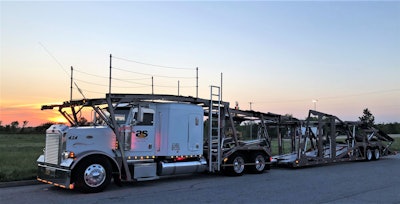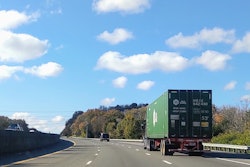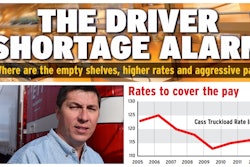
Here's what's causing the “driver shortage” everybody talks about: Instead of giving out research grant money, bureaucrats should be talking to the true backbone of the transportation industry. That’s the owner-operators, the small family-owned fleets -- that’s who’s made everything roll and get done all these years.
It’s the big corporate mega fleets along with the elected officials who have created the supply-chain mess we're in. By listening to these mega companies on all these laws and regulations that they pass in the name of the safety of our highways, government has done exactly what all the big fleets wanted – drove many of the independent and smaller fleets out. When you remove the backbone, the movement stops.
Case in point: hours of service regulation that does not work. If anything, the basic rule in place since early this century has made it more unsafe out here, in my view. The electronic logging device mandate, on top of that, also sold as a fix for the safety of our highways, to keep up with our hours, has made it more unsafe. You have drivers driving way too fast because they are up against that 14-hour clock from the moment they start the day to the moment they finish it.
If ELDs were truly about safety, there wouldn't be a truck on the road that’s doesn’t have one, yet older trucks are able to run paper logs.
[Related: 2019 Fatal crashes involving large trucks at highest levels since 2005]
Broad exemptions like this, evident in other rules as well, show clearly that bedrock safety isn’t the goal of these regulations. If a truck can’t comply with the law of the land, it should not be allowed to run, in my view. Otherwise, the government’s mandate for ELDs for the rest of us is tantamount to discrimination against one group in favor of the other. It costs us more money to operate than it does those who can avoid running an ELD. Where’s the safety in that?
Until the elected officials wake up and understand what they are doing, these dynamics are only going to get worse. The smaller fleets and independents will continue to leave the industry, and that is bad news for drivers.
It’s not rocket science to see and understand the problem larger fleets have keeping drivers. Too many carriers are focused solely on the bottom line and pushing drivers back out the door after nothing more than 34-hour reset -- they need them back out there rolling; if not, it’s affecting their bottom line and that’s all they care about.
Nobody it seems to me wants to hear the voices of those of us who truly do see and know what the real problems are. Some regulators see us as part of the problem, furthermore. But our voice is the solution.
The transportation sector was doing fine until people who have not a clue started trying to fix something that wasn’t broken. The real problem with safety out here is not the big trucks, as so many seem to want to show. The only reason it gets painted the way it does is because of the billboard lawyers that go after trucking companies’ insurance. They know exactly what they can get out of insurance companies to keep from going to court. That’s who needs to start being regulated -- the lawyers and insurance companies who will pay a claim even though the trucking company is not at fault. –Thomas Hogan, Ward, Arkansas
[Related: Smallest fleets show most growth over the pandemic period]










